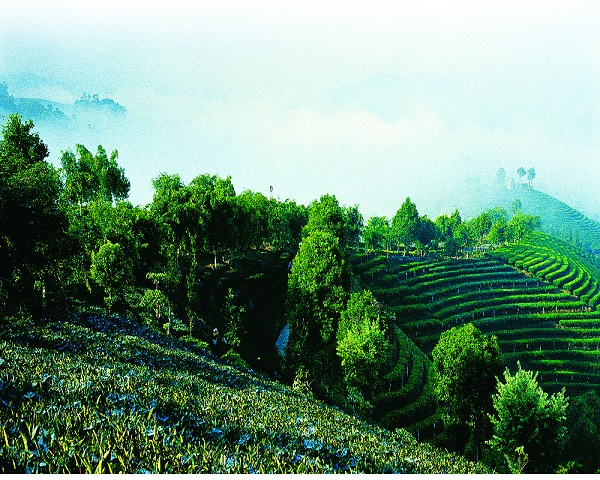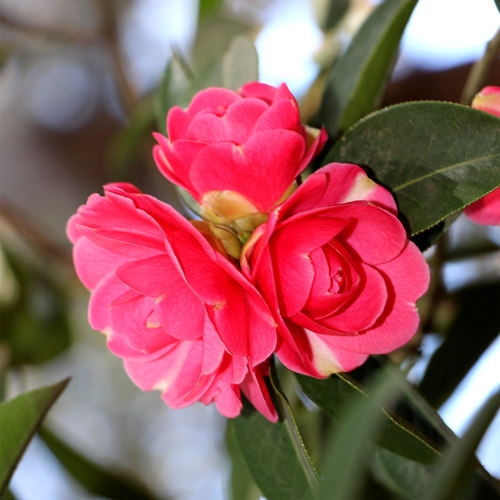
The Beauty of Villages in Yunnan
Yunnan Province is home to numerous beautiful villages that are rich in natural beauty, cultural heritage, and traditional architecture. These villages provide a glimpse into the diverse lifestyles and customs of the various ethnic groups that inhabit the region. Here are some of the most enchanting villages in Yunnan:
Yuanyang Rice Terraces
Yuanyang is famous for its stunning rice terraces, which are a UNESCO World Heritage Site. The villages in this area, inhabited by the Ha’ni people, offer breathtaking landscapes and unique cultural experiences.
Duoyishu Village: Known for its panoramic views of the rice terraces, especially at sunrise. The village offers traditional Hani houses and a chance to witness the intricate agricultural practices.
Bada Village: Offers expansive views of the rice terraces that stretch into the distance, making it a perfect spot for photography and sunset views.
Laohuzui (Tiger Mouth) Village: Famous for its dramatic rice terraces that resemble a tiger's mouth, offering stunning views during sunset.
Shaxi Village
Shaxi is an ancient market town that was a crucial stop on the Tea Horse Road. It has retained its historical charm and offers a peaceful retreat.
Sideng Square: The heart of Shaxi, where traditional wooden buildings and cobblestone streets transport visitors back in time.
Ouyang Courtyard: A well-preserved traditional Bai family courtyard that offers insight into local architecture and culture.
Friday Market: A vibrant weekly market where locals from various ethnic groups gather to trade goods, offering a lively and authentic cultural experience.
Na’xi Dongba Village
Located near Lijiang, Na’xi Dongba Village provides a deep dive into the culture of the Naxi people.
Dongba Culture Museum: Showcases the unique Dongba script, traditional clothing, and religious artifacts of the Naxi people.
Traditional Na’xi Houses: Visitors can explore traditional wooden Na’xi homes and experience local hospitality.
Cultural Performances: Regular performances of Na’xi music and dance, providing a rich cultural experience.
Xizhou Village
Xizhou is a charming village near Dali, known for its well-preserved Bai architecture and rich cultural heritage.
Bai Traditional Houses: Beautifully decorated homes with intricate wood carvings and colorful murals.
Yan Family Compound: A grand residence showcasing traditional Bai architecture and culture.
Morning Market: A lively market where locals sell fresh produce, traditional snacks, and handmade crafts.
Matang Gejia Village
Matang Gejia Village is located near Kaili and is home to the Gejia people, a subgroup of the Miao ethnic group.
Traditional Gejia Clothing: Known for their vibrant, hand-embroidered garments and unique headdresses.
Handicrafts: The village is famous for its batik and silver jewelry, with opportunities to see artisans at work.
Cultural Practices: Visitors can experience traditional Gejia songs, dances, and festivals.
Puzhehei Village
Puzhehei is a picturesque village surrounded by karst mountains and clear lakes, often compared to a fairyland.
Karst Landscape: The village is surrounded by unique karst formations and beautiful lakes, ideal for boating and photography.
Lotus Fields: During summer, the lotus fields bloom, creating a stunning natural spectacle.
Traditional Yi Culture: Puzhehei is home to the Yi people, and visitors can experience their traditional festivals, clothing, and customs.
Wumu Village
Wumu Village is a remote and serene village located in the mountains of Lijiang.
Na’xi Architecture: Traditional Na’xi wooden houses and narrow, winding streets create a peaceful and historical atmosphere.
Scenic Views: The village offers breathtaking views of the surrounding mountains and valleys.
Local Crafts: Visitors can see traditional Naxi weaving and other handicrafts.
Cizhong Village
Cizhong is a unique village in the Yunnan-Tibet border area, known for its blend of Tibetan and Catholic cultures.
Cizhong Church: A historic Catholic church built by French missionaries in the early 20th century, blending Gothic and Tibetan architectural styles.
Vineyards: The village is famous for its vineyards and wine-making tradition introduced by the missionaries.
Tibetan Culture: Visitors can experience traditional Tibetan customs, food, and hospitality.
Nuodeng Village
Nuodeng is an ancient village with over a thousand years of history, located in the mountains of Dali.
Ancient Salt Wells: The village was historical



